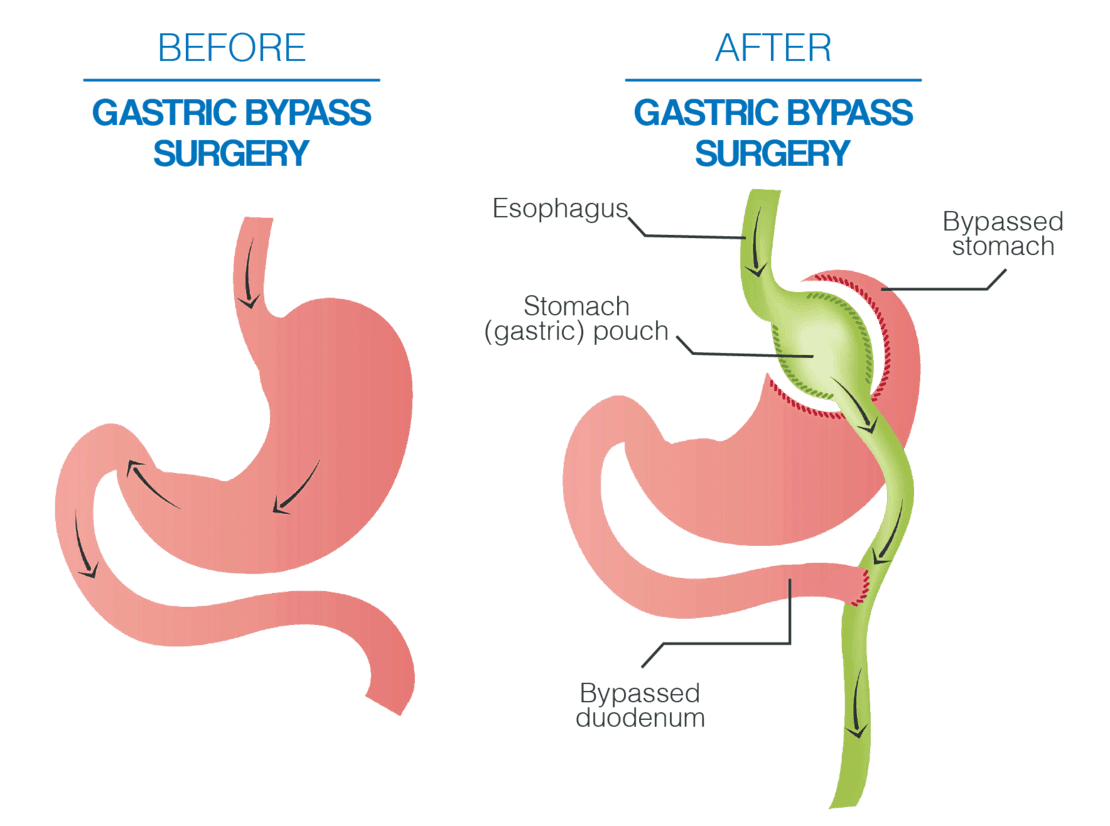Gastric bypass surgery:
is a surgical procedure aimed at reducing the size of the stomach and rerouting the small intestine, which helps in reducing the amount of food intake and decreasing calorie absorption. There are two main types of gastric bypass: full gastric bypass and partial gastric bypass.
Benefits of Gastric Bypass Surgery:
Effective weight loss: Helps in significant and sustainable weight loss.
Improved overall health: Can help improve health conditions related to obesity such as diabetes and high blood pressure.
Enhanced quality of life: Can lead to improved quality of life and increased physical activity.
Procedure Steps:
Anesthesia: The patient is fully anesthetized.
Reducing stomach size: The size of the stomach is reduced by removing part of it or dividing it.
Rerouting the small intestine: The small intestine is rerouted to decrease calorie absorption.
Risks and Complications:
Bleeding: Bleeding may occur during or after the surgery.
Infection: Infection may occur at the surgical site.
Stomach leakage: Leakage may occur from the remaining part of the stomach.
Post-Operative Diet:
First week: Clear liquids such as water and juices.
Second week: Pureed and soft foods.
Third week: Gradual introduction of solid foods.
Expected Results:
Weight loss: Patients can lose about 60-70% of their excess weight within the first year.
Health improvement: Health conditions related to obesity can significantly improve.
Gastric Bypass Surgery (Full - Partial)
SUBSCRIBE FOR NEWSLETTER

Your experience on this site will be improved by allowing cookies.

